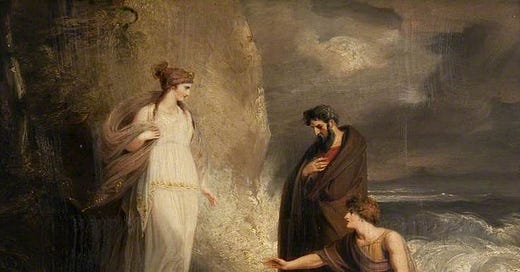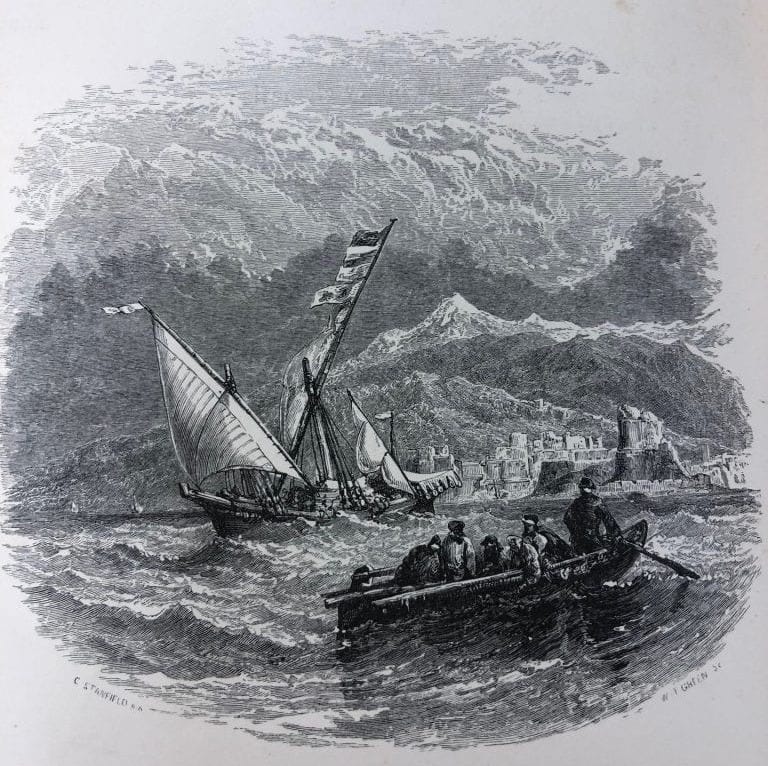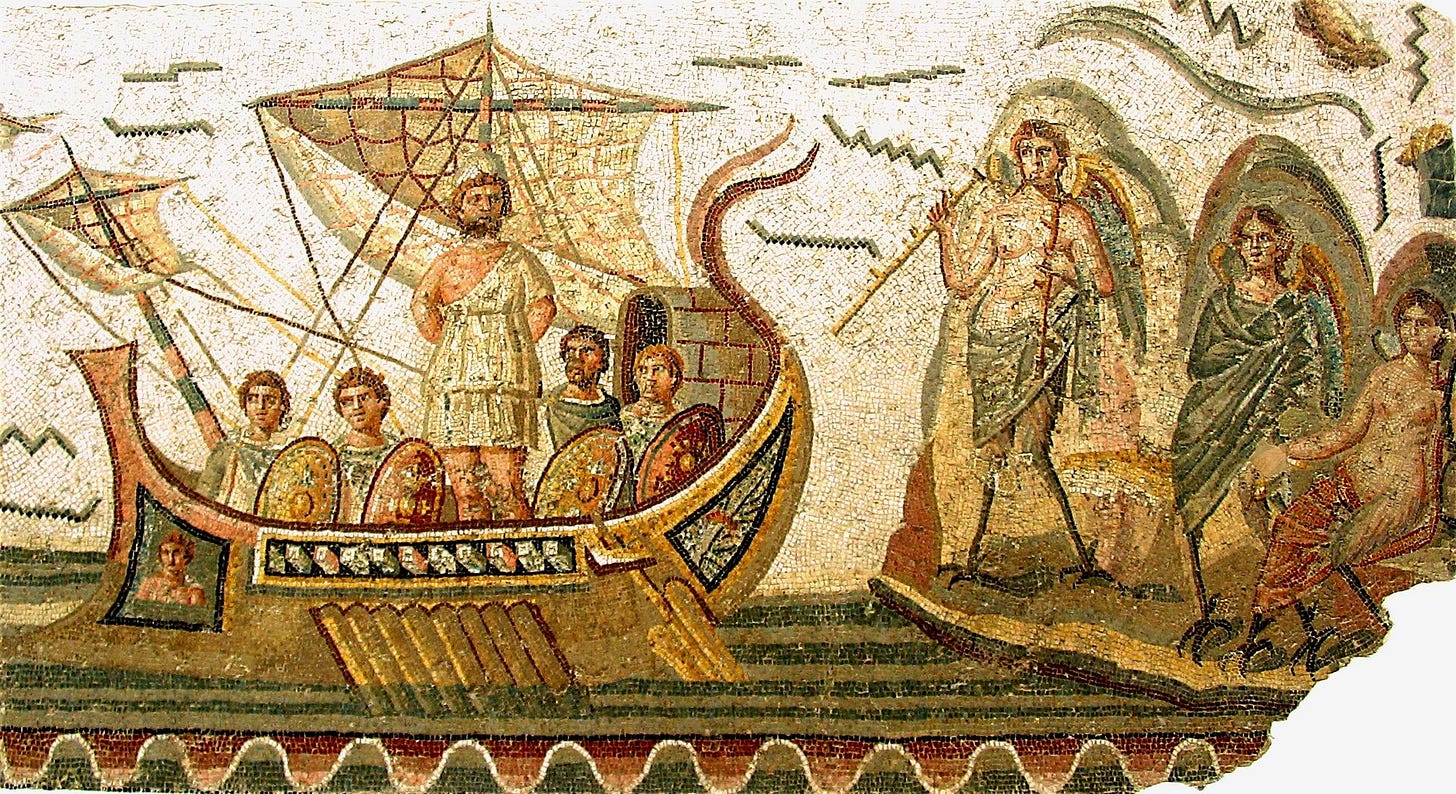Henry Winter's Favourite: Alfred Lord Tennyson & His Metaphysical "Symposium"
Heroism, love, adventure, gods, Greece & everything in between. He sees it, he writes it.
Alfred Lord Tennyson is one of the poets of the highest calibre, almost descended from the gods, whose legends have been turned into reality. His poetry both created its own genre and became an important part of the literary group of its period (mid-1800s). It overall has an ethical, luminous, mythological and artistic style. He is one of the rarest poets I have seen who conforms to T. S. Eliot's "flexibility, variety and competence", three characteristics he noted that only master poets possess.
All these poems compiled in this edition reveal some of Tennyson's basic ideas. He himself believed in evoking the power of emotion through an artistic, romantic depiction of nature or the environment. All of his poems are centered around the basic embodiments of nature, each of which has a specific emotion attached to them. Tennyson has always aimed to deconstruct nature, beauty and the soul into one. His works are also quite remarkable in terms of the depth they contain. He has written elegant poems, sonnets, narrative poems and a wide variety of rhythmic works throughout his life, and the only form of poetry he has not tried has been "haiku".
So, after a few little preliminary information, we can move on to the main topic I want to talk about:
"Ulysses" and the metaphysical banquet it is.
Heroism is unquestionably the oldest metaphor in the history of written and oral literature. Probably everyone is familiar enough with the discourses revolving around the theme of heroism, but it is worth informing: this type of discourse glorifies heroic characters and reveals a kind of hierarchical order for "great men". For an ordinary person, heroic literature is one-dimensional, but in order for us to understand how modernity observes "heroes", we need to go through a radical revision of our understanding of heroic characters. This multifaceted, metacurgical approach breaks down the glorified figures, so that the underlying human concerns can be revealed.
The Victorian era, in its search for a human-centered macrocosm, has managed to focus on the man-made, instead of the human. Therefore, heroes are not the necessary characters in a world where machines are relatively more efficient. The activities of the human species have been increasingly restricted, and the fragmentation of individuality has plagued humanity since the nineteenth century. Heroism, as Ernest Becker pointed out, is a custom, a "causa-sui project" that creates the illusion of immortality even in the event of the hero's death. Therefore, it is quite interesting to tell how a newly discovered anxiety affects the body of a Victorian hero. This anxiety stems from the fact that the architecture of the protagonist's mortal body is subject to an entropic impermanence, while the mechanical giants of the Industrial Revolution were built to be permanent. Robert Browning's hero "Sordello" shares these concerns again in his poem of the same name written in 1840:
"The Body is the Machine that Activates the Will It turned out to be inappropriate in the beginning; In the name of Showing, Reflecting, Humanity was also not more harmonious: is the will itself was wrong?"
It is clear that the inner dilemmas of heroism and mortality were an established and dominant discourse of the Victorian era. Poets such as Gerard Manley Hopkins and Charles Algernon Swinburne have also explored these ideological issues in their own works. However, Sir Alfred Lord Tennyson's "Ulysses" occupies a unique place in the entire Victorian Heroic Literature and Heroic tradition. Tennyson's hero, "Odysseus", speaks in the form of a dramatic monologue about his tendency to become a warrior and adventurer rather than a settled ruler. The last lines of the poem are well known and respected in the English-speaking world:
"Similar characters of heroic hearts, Weakened by time and fate, but his will is strong, To strive, to search, to find and not to give up."
Adding the prefix "hero" somehow makes the mortal Octogenarian invincible and turns him into a kind of "symbol of immortality". The usually dominant individuality of Odysseus is one of the most important features of this literary metaphor, which critics spread as a testimony to the soul of humanity: the body dies, but the will remains constant throughout both life and death. The person who has great experiences will eventually find the great Achilles. As Charles Mitchell noted, Achilles and Ulysses have the "equal temperament of heroic hearts": Achilles, as a partner, is what Ulysses has been and will be.
Odysseus is seen as the archetypal masculine heroic figure who, armed with the desire to become a legendary criminal, sets out to conquer the world. According to Mitchell, Odysseus adopts the spirit of humanism and overcomes the greatest obstacle to our will, namely, our mortality. But this is a conclusion that can easily be proved to the contrary, because it does not explain the obvious disappointment of Odysseus, who could not bear to rule over a "savage race", but also could not resolve his disappointment.
Barthes states the following: "To define an author to a text is to set a limit to it." It is true to harmonize literary works with the biographical details of deceased authors, but in the process of this self-congratulation, we all forget the necessity of the following question: does the text belong to the reader or to the author? According to academics, any text that does not belong to the reader's period must belong to the reader again. Tennyson's "Ulysses" is no different. When the heroes are surrounded by structures created by humanity (literary or technological), imposing the issue of the greatness of humanity has ceased to be a viable method. What remains is only an anthropological incapacity that seeps through the cracks of futile attempts to heroically portray the war cry in literature:
"We are no longer the force that used to move the earth and the sky; we are us."
That heroic sensuality, repeated countless times in the last lines of "Ulysses", often makes him forget the lines before him: Odysseus cannot acquire subjectivity unless he is placed in a dangerous situation.
How can a hero exist without an epic setting? Some readings of this poem have interpreted Odysseus' constant quest for adventure as a deliberate suicide mission, as Robert Langbaum has stated: "Death is deliberately sought". Langbaum is right in his observation, but it is not enough to stop here. It is also necessary to mention the obvious metacurgistic elements in Tennyson's poetry.
The Odysseus myth has a fairly wide origin in the literary tradition. From the moment Odysseus was conceived in Homer's epic, he remained buried under the stereotype of the genre and carried the monumental expectations of the Hero. But fleeting moments of metacurgical awareness have come to the surface in these important literary achievements. Some critics, such as Ronald Richardson, have noticed metacurgical elements in Homer's works, in the bard figures, which are "a metacurgical presentation of how the work is presented in itself, describing his works". Is it really Telemachus who says this?:
"why do you refuse our faithful bard the chance to entertain us in every form in which the spirit moves him? The bards cannot be blamed —"
Is Homer making a political and metacurgistic statement about his position in Greek society? Odysseus himself, as Gregory Dobrov observes, has the metacurgical role of a bard: "a paradoxical figure (in the literary sense) and an imitative (in the mythological sense) role". In Virgil's Aeneid, the death of Cretheus is a symbolic death as well as a biological one. He is killed in battle, which allows for multiple submissions. The cruelly written irony of a bard (someone who mostly talks about heroic struggles) dying in a battle is addressed by Virgil:
"Cretheus takes care of the song and the lyre, he tunes a continent according to that taut wire, he used to talk about cavalry, guns, wars and those who fought with them."
While these metacurgical elements have been a part of Odysseus' legacy from the very beginning, they become the “raison d'être” of Odysseus' voice in Tennyson's poetry. Odysseus' statement, "I have become a name", is often read as an acknowledgment of his fame. But in the process of deconstructing the text, it becomes clear that this situation is the ironic awareness of fiction, the temporary structure of heroism. He is not an individual with a perpetrator, and he acquires subjectivity only when he is associated with his name. The subjectivity lent to it is a structure of this literary microcosm in which it exists. Academic discourse has observed a similar self-reflective phenomenon (almost obsessively) in the context of the meta-fictionalism in Joyce's "Ulysses". Joyce's universe is complex because he juxtaposes his own creations with the already existing framework of the Odysseus myth. This Deconstructs an interface between the familiarity of Odysseus's legacy and the remoteness of Joyce's genius. As Ezra Pound noted: "This correspondence is part of Joyce's medievalism and is mainly his own affair, it is a scaffolding, a means of construction, which can only and only be justified by this".
A similar conflict is found in Tennyson's "Ulysses". Odysseus is disappointed with the invention of himself as an old king who has been driven from the battlefield. It is interesting that Tennyson chose to depict the moment before the journey rather than the journey in this case because, as Michael Shapiro points out: "To remove Ulysses from the narrative of the sacrifices that the self has to endure in order to achieve consistency in an order is to decontextualize and therefore not politicize one's understanding of self and order". It is as if Odysseus were rebelling against Tennyson's intentions. This war is unlike any war he has been a part of before. This is a war that is meta-fictional and will never win. An ironic undertone breaks down every heroic decision Odysseus makes. This self-awareness extends to the existential and philosophical problems that Odysseus addresses in his monologue:
"My goal is, Of the sunset and all the western stars it is to sail beyond the baths, until I die. Maybe the gulfs will wash us down: Maybe we'll touch on the Happy Islands, And we see the great Achilles, whom we know."
The recognition by the character that the goal of a heroic character is to sail to new lands and do heroic deeds to prevent the destabilization of the heroic structure, or to reunite with other great “Names”, is a violent protest against the ontological conditions that Tennyson Decrees for Odysseus. In John Barth's short story ”Lost in the Funhouse“, Barth said, "The climax of the story should be that the hero discovers the way to get through the funhouse. But if he didn't find anything, he might have stopped looking,” of course, he mocked the traditions of fiction when he stated. The "fun house" becomes a metaphor for the text, which cannot escape the structure that suffocates the character and weakens him. Tennyson's Odysseus suffers the same fate. He gets nowhere, but ends his temporary existence with an empty promise to get rid of those strict restrictions. Tennyson drags Odysseus into a state of eternal uncertainty, of which he complains:
"How boring it is to stop, to finish, Not being able to rust and shine, not being able to shine when not in use! As if breathing is living!"
The concept of heroism is built around the idea that the individual is invincible, but the hero's refusal to die, in the words of Ernest Becker, "means an inability to recognize his natural weakness. Not only the powerlessness to avoid death, but also the powerlessness of not being able to stand alone in a way that is firmly tied to one's own powers". If Odysseus truly accepted his weakness and voluntarily set out for his final destination, death, then this is not only the Hero's death, but also the final end of masculine expectations of heroism, of what is expected from a literary character.
The awareness of the mortality of the great ones is shaped by time and the various heroic environments to which the hero is subjected by the author. As stated earlier by Adorno and Horkheimer: "The element that internally shapes and regulates individuality, time, is still so weak that the unity of adventures remains an outward unity, formed by spatial changes of scenes, the succession of places of the gods, where the hero is thrown by the storm". Odysseus, just like other people, cannot escape death, but neither does he deny his mortality. Perhaps this is the ultimate reason why the heroic story he built turned into a kind of beacon of hope for many readers. Odysseus not only passes from this world to the next, he has also passed from the fictional structure of the page to the metacurgical field of self-awareness.






I loved this one so much 🫶🏾 So interesting <3 Wow Wow 😘